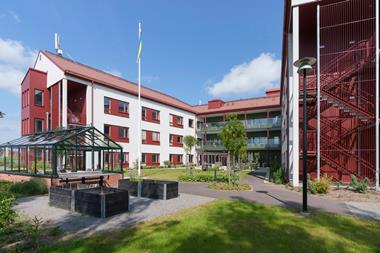Negative interest rates in Japan could benefit the country’s REITs, according to CBRE.
Hiroshi Okubo, head of research at CBRE Japan, said the Bank of Japan’s recent implementation of a negative interest rate policy could make J-REITs’ dividend yields more attractive.
The financing environment for J-REITs will also improve, CBRE said, invigorating Japan’s overall real estate investment market.
At the same time, the move to charge a 0.1% interest rate on commercial banks’ deposits with the Bank of Japan could further compress yield in the overall real estate market, including for prime assets in central Tokyo.
Cheaper financing and the weaker yen are expected to boost corporate sentiment and ensure that office demand remains solid, Okubo said.
CBRE predicted major office markets would continue to enjoy tight supply and demand.
Grade A office rents in Tokyo are tipped to rise by approximately 10% over the next couple of years.
Occupier demand for high street retail assets and hotels in Japan’s major cities will also benefit from the interest rate cut, due to the wider interest-rate gap between Japan and the US and the yen’s consequent weakening against the US dollar.
“This will support the continued growth of inbound tourism, which had been at risk of a slowdown due to recent weakness in the RMB,” Okubo said.
As reported last week, Denmark’s largest commercial pensions company, PFA, is investing in an Asia-Pacific core fund being launched by Morgan Stanley Real Estate Investing.
Industry sources believe Morgan Stanley is close to completing an initial capital raising of up to $500m (€461.5m).
A number of investment managers are seeking to launch Asian core-plus funds, with Asian real estate funds increasingly moving from opportunistic to core and value-added strategies, according to analysis by CBRE last year.
Savills Investment Management is planning to launch a fund this year, as reported earlier this month.





![CBRE Investment Management [Real Estate - Asia]](https://d15duu1h3gsd2d.cloudfront.net/Pictures/100x67fitpad[255]-90/P/Pictures/web/t/j/u/cbreimlogohorizoutlcleanedup01green_654324.jpg)







